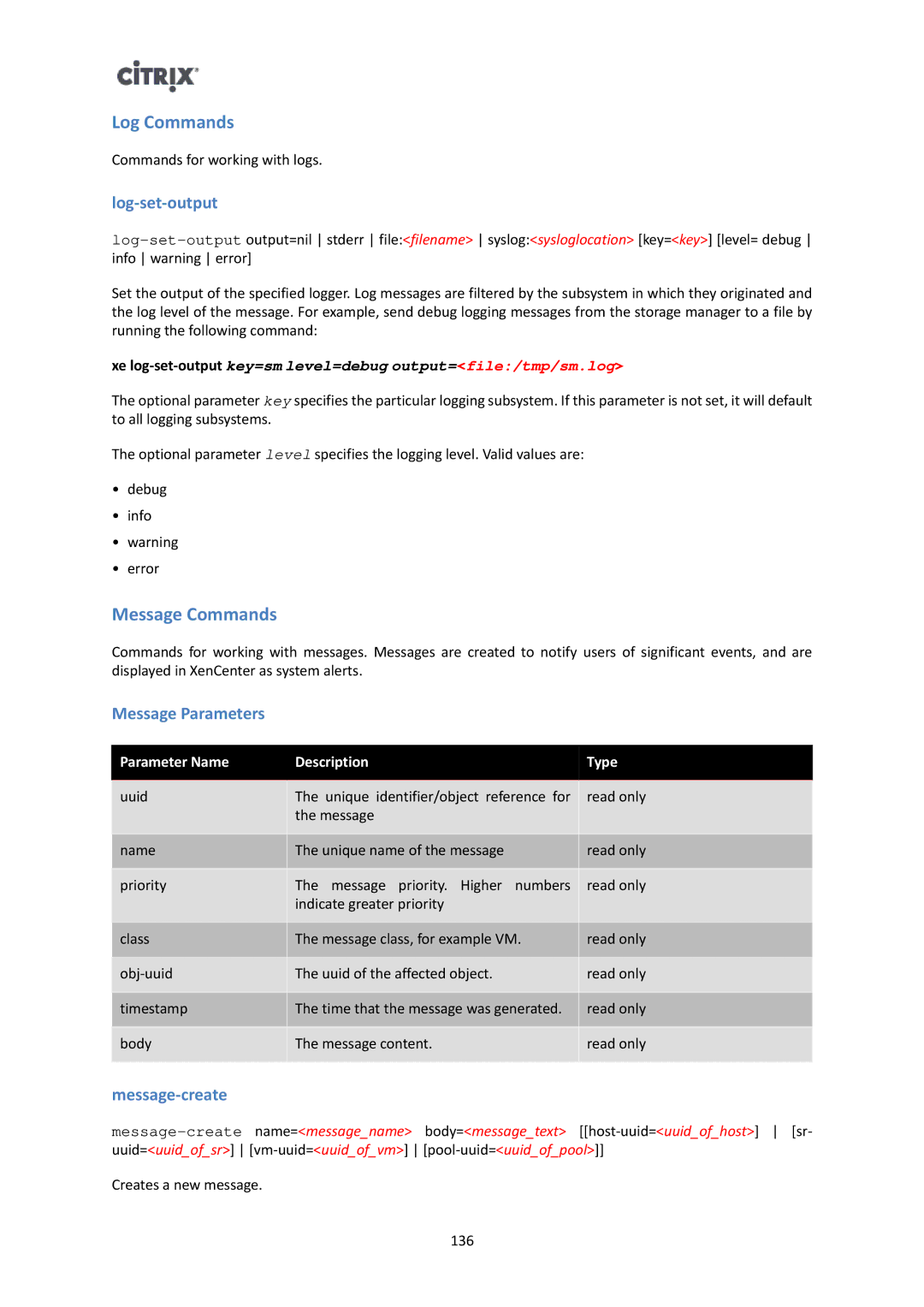Log Commands
Commands for working with logs.
log-set-output
Set the output of the specified logger. Log messages are filtered by the subsystem in which they originated and the log level of the message. For example, send debug logging messages from the storage manager to a file by running the following command:
xe log-set-output key=sm level=debug output=<file:/tmp/sm.log>
The optional parameter key specifies the particular logging subsystem. If this parameter is not set, it will default to all logging subsystems.
The optional parameter level specifies the logging level. Valid values are:
•debug
•info
•warning
•error
Message Commands
Commands for working with messages. Messages are created to notify users of significant events, and are displayed in XenCenter as system alerts.
Message Parameters
Parameter Name | Description | Type |
|
|
|
uuid | The unique identifier/object reference for | read only |
| the message |
|
|
|
|
name | The unique name of the message | read only |
|
|
|
priority | The message priority. Higher numbers | read only |
| indicate greater priority |
|
|
|
|
class | The message class, for example VM. | read only |
|
|
|
The uuid of the affected object. | read only | |
|
|
|
timestamp | The time that the message was generated. | read only |
|
|
|
body | The message content. | read only |
|
|
|
message-create
Creates a new message.
136
